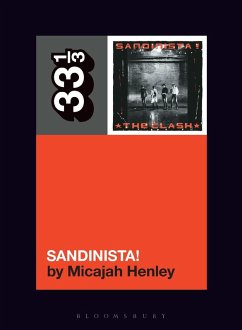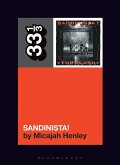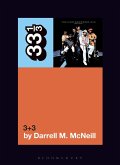Following the success of their instantly iconic double LP, London Calling, The Clash set out to do something "triply outrageous." Named after the Nicaraguan rebels who successfully overthrew an authoritarian dictator, Sandinista! consists of 36 songs across six sides of vinyl. Produced by the band, it showcases their politics as well as their ability to adopt a multitude of genres ranging from punk, reggae, jazz, gospel, calypso, and hip hop. Free from the influence of their Machiavellian manager, Bernie Rhodes, The Clash still battled their record label to release the triple LP on their terms: three for the price of one.
Despite its polarizing reception from critics at the time of its release, Sandinista! is often considered one of the greatest albums of all time. Nevertheless, critics and fans have spent over 40 years debating whether the album would be better as a 12-track LP. This book entertains that idea and considers what is lost or gained in the process. To do so, the book delves into the politics of The Clash, the spliff bunkers constructed for the production of the album, and the sacrifices made upon its release. It examines the album's 36 tracks and considers the significance of the record's dissection on behalf of fans who curate their own versions of the album in the mixtape, CD, and playlist eras.
Despite its polarizing reception from critics at the time of its release, Sandinista! is often considered one of the greatest albums of all time. Nevertheless, critics and fans have spent over 40 years debating whether the album would be better as a 12-track LP. This book entertains that idea and considers what is lost or gained in the process. To do so, the book delves into the politics of The Clash, the spliff bunkers constructed for the production of the album, and the sacrifices made upon its release. It examines the album's 36 tracks and considers the significance of the record's dissection on behalf of fans who curate their own versions of the album in the mixtape, CD, and playlist eras.









